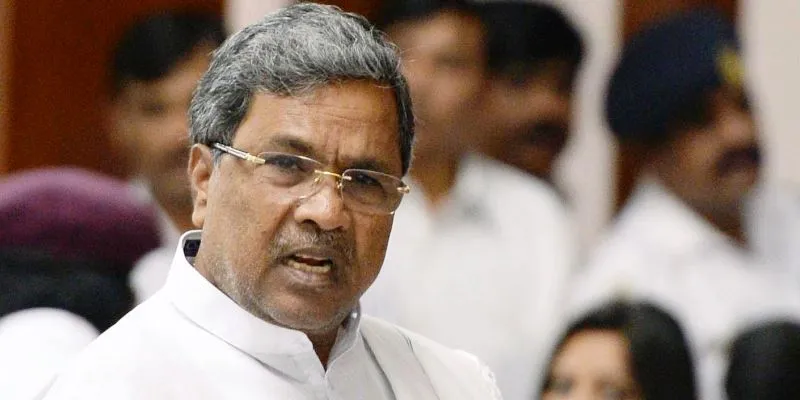Karnataka budget 2016 raises hopes of farmers, students, and Bangaloreans
Karnataka’s Chief Minister Siddaramaiah announced the latest budget for the state on Friday amidst economic slowdown from 7.8% to 6.2% in one year, and farmer unrest. The budget however, shows a ray of hope for Bangaloreans, students, and farmers of the state.

According to the announcements made by the CM, beer, motor vehicles, soft drinks, entertainment, DTH services, petrol, and diesel will become costly. On the other hand, taxes on adult diapers, medical equipment, LED bulbs, cotton, chutney powders, and set top box have been reduced.
Bengaluru received a major budget boost aimed at improving traffic, roads, and public transport. Siddaramaiah allocated Rs 2400 crores for land acquisition for the six-lane Mysuru-Bengaluru highway. The CM also announced the development of three elevated corridors in Bengaluru, almost 52 km long and free from signals. The CM also proposed construction of multilevel car parking in many areas. He also announced the improvement of 112 roads in the city. BMTC too has been given a grant to raise its fleet by 1,000 buses.
With plans of starting new medical colleges in Karwar, Madikeri, and Chamarajanagar, and doubling the training allowances for law degree students, there is a sincere push to improve education in the state. Siddaramaiah also announced development of a new education policy, and enrolling all students under the Aadhaar platform. 100 hostels will also be set up for pre-university students.
With strict measure's like abolition of agricultural income tax, Karnataka's new budget also aims at addressing the farm crisis in the state. The CM also announced the Indira Suraksha Yojana to provide medical services to the families of farmers who have committed suicide.
The latest budget of Karnataka has an outlay of 1,63,419 Crore for the financial year 2016-17, providing major boost to Agriculture, Education, Rural & Urban Development and infrastructure sectors. The fiscal deficit is expected to be 25,657 crore, which has been well controlled and at 2.12 per cent of GSDP.
According to a press release by Brickwork Ratings, there are more positives to Karnataka's budget than negatives -
Positives:
- A series of reforms/allocations towards agriculture and allied sector like abolishing agriculture income tax, allocation of 14,477 crores for development of water resources, 4034 Crore for Agriculture sector, 1886 for Animal Husbandry and 753 Crore for Horticulture sector, Development of 100 agricultural villages under the “Suvarna Krishi Grama” programme is a welcome proposal towards development of agriculture sector.
- A budgetary allocation of 4,344 Crore has been made for Agricultural department and Agri-clinic would setup in collaboration with IIM-B and GKVK agricultural university through PPP .
- 3,500 crore allocated for development of State Highways and upgrading of Major District Roads.
- In 2016-17, a total outlay of 14,853 Crore is provided to Urban Development Department. Of this, 6,044 crore is for works related to Bengaluru.
- Water Supply and Underground Drainage Project for 110 Villages coming under BBMP at a cost of 5,018 Crore.
- In 2016-17, a total outlay of 12,632 Crore is provided to Energy Department. Provided the power crisis in the state, this is a good move.
- During 2016-17, a total amount of 17,373 Crore is provided to Primary and Secondary Education Department.
Neutral:
- Allocation for development of rural roads increased to 3,609 crore.
- In 2016-17, a total amount of 1814 Crore is allocated to Commerce and Industries Department.
- A total amount of 222 Crore is allocated to IT, BT and S&T Department.
- During 2016-17, 5,032 Crore is provided for Department of Health and Family Welfare.
- During 2016-17, a total amount of 4,651 Crore is provided to Higher Education Department.
Negatives:
- Waiver of full interest on all types of agricultural loans availed from various co-operative institutions which are overdue as on 30-09-2015 if the farmers pay the principal amount within 31-03-2016. While the budget implication is not high, the credit discipline in rural areas may get affected.







